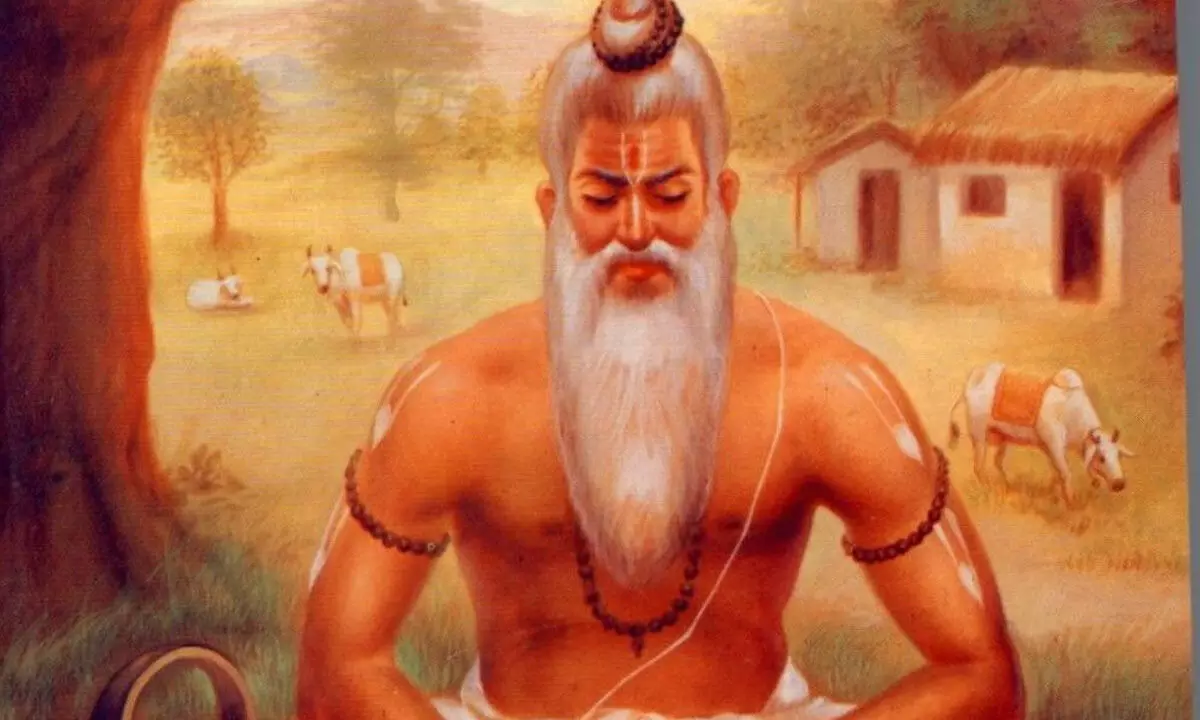Can We Be the Vishva-Guru?

The expression Vishva-guru is rather tricky. It is a compound word in Sanskrit which can mean ‘the guru for the world, or ‘one for whom the world is the guru’.
The expression Vishva-guru is rather tricky. It is a compound word in Sanskrit which can mean ‘the guru for the world, or ‘one for whom the world is the guru’. We do hear claims that Bharat is the Vishva-guru, but we have to be conscious of the irony of language. A well-known verse in the Manu Smriti seems to be the inspiration for such claims. The verse says that ‘the people of all lands on earth would have to learn their charitam (code of conduct) from the first-born men of this land’ (2-20).
Our spiritual masters rarely make this claim. Prior to Manu the Vedas said, ‘let all noble thoughts come to us from all directions’. The Vedic sage used the word Vishva (world), implying that we are also humble enough to receive all good thoughts from anyone in the world. Our sages acknowledged the then Greek astronomers, saying, ‘they too are equal to rishis; though they are mlechhas, shastra is well protected by them’. Mlecchha referred to those who did not follow the Vedic culture.
Perhaps the world view of a civilization and the attitude to other civilizations can be the indicators to see whether one can claim to teach anything to the world. Indian civilization is unique in this regard. This is perhaps the only civilization which asks the human being to go beyond religion and investigate the Supreme Reality for oneself. A person on this path becomes an ati-varnashrami, one who transcends the definitions of varna and ashrama. He goes beyond all identifying factors like brahmana varna or grihastha ashrama. Though the ritualistic study of Vedas was restricted to some, this knowledge was not denied to anyone. ‘Go beyond the Vedas, go beyond all the dualities, be always stationed in the knowledge of Reality’, Krishna tells Arjuna (Gita 2-45). No other civilization asks its seekers to go beyond its own sacred texts.
Going beyond the dualities or binaries such as good and evil, friend and foe, believer and non-believer, is important. A person has to lose his social identity completely and stay as the hypothetical God himself, with unconditional love for all beings, seeing all beings as his own self (Gita 6-45). Here one may note how God does not have any anger to those who worship other gods (Gita 9-23). World civilizations are seen confined to binaries, distinguishing ‘our people’ from ‘others’.
Our sacred texts equate the jiva with Brahman, the Supreme Reality. We are not conscious of this because we identify ourselves with the body-mind-complex. We are asked to contemplate and get rid of the superimposed identity, realise oneness with the Supreme, and work with that frame of mind.
Our world view is further seen in the Gita (18-20). It is to see the oneness of creation, to see the unchanging divine principle in all beings. All beings or people seem as though divided, but there exists an underlying unity in all. As against this, there can be the vision to divide people into different categories. This vision is due to rajo guna.
In such a world view, with unconditional love for all, tolerance and acceptance are ingrained. It is the only means for world peace, as it does not ask its followers to impose on others in any way – either politically or spiritually. Even the idea of guru is not an imposition, because we are only holding a formula for world peace, it is for others to follow or not. One becomes a guru only when there is a disciple, but the absence of a disciple does not diminish his stature. It is for the guru to be spiritually strong so that the world feels bound to acknowledge it, if not follow.
The question of varna division comes as a counter. This division is a mere acknowledgement of the diversity in human nature in their social actions, not in their essence. This diversity is universal, as discussed in earlier notes. It is unfortunate that most Indian scholars stand disconnected from their spiritual heritage and hence do not realize this. Society would not have survived if it really oppressed or discriminated against certain sections of people.
However, unless a large percentage of society follows the above noble path, we can only say that Vishva-guru is our ideal, advocated in theory but actualized only by a few.
(The writer is a former
DGP, Andhra Pradesh)







